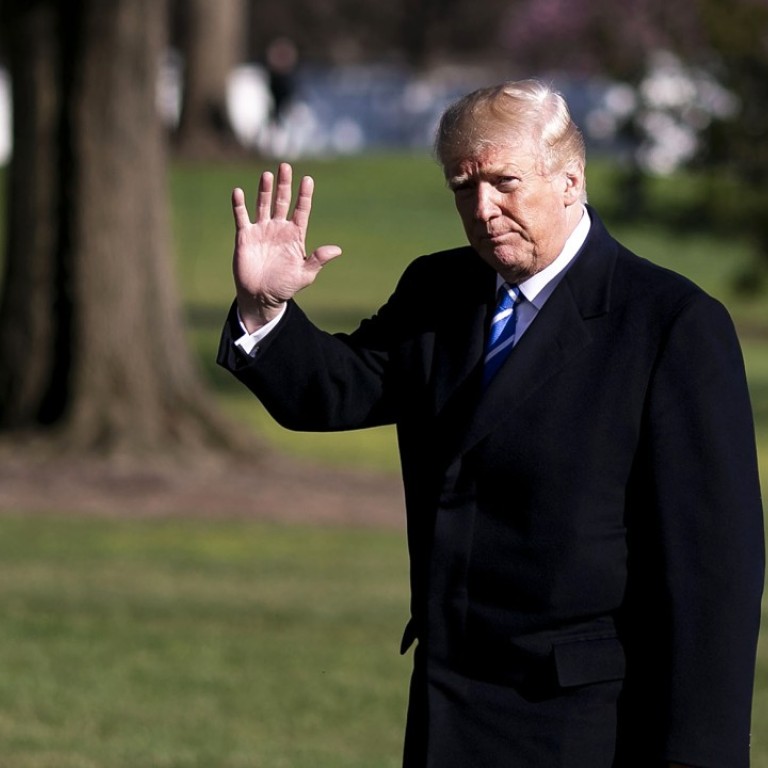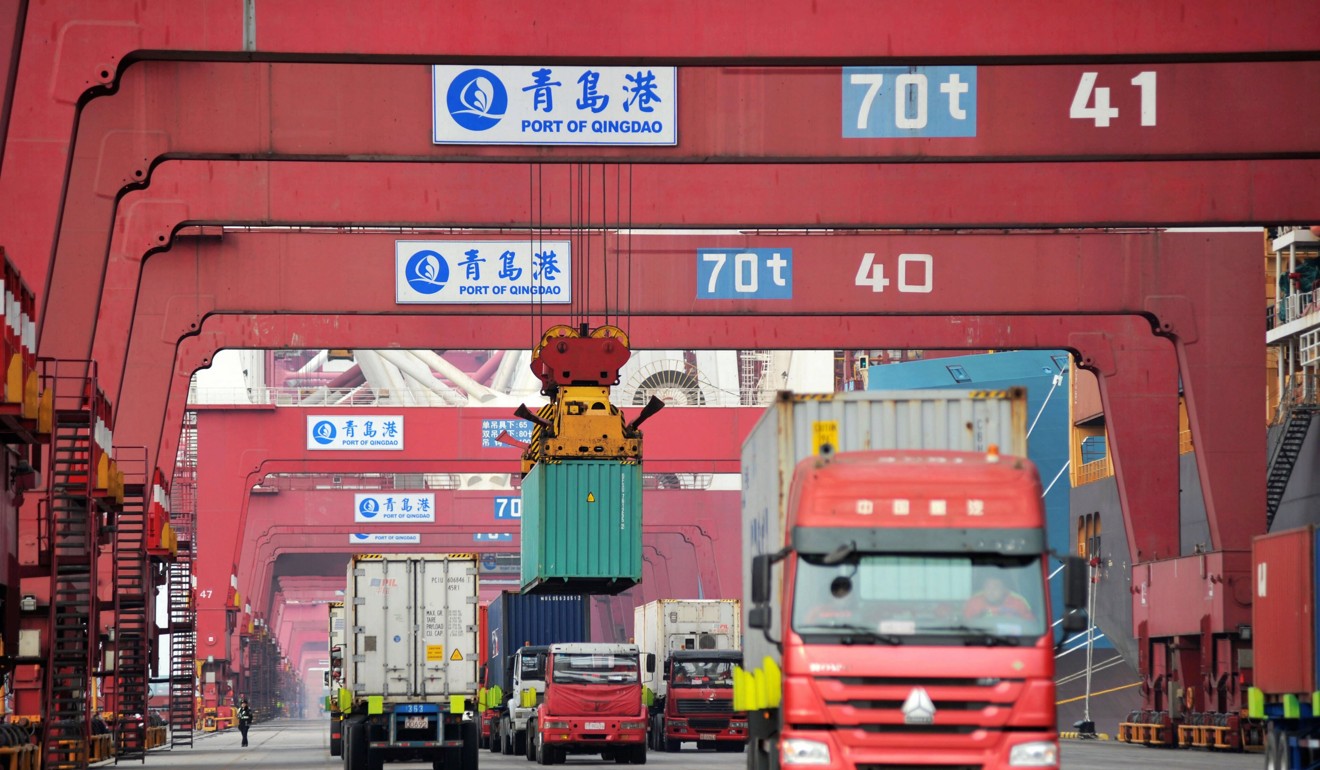
Could services be next in China’s sights to defend its interests ‘at any cost’ in a US trade war?
Beijing stresses it does not want a confrontation but insists it will fight back if US president raises the stakes
China has warned that it will ramp up retaliatory measures against the United States and defend its interests “at any cost” after US President Donald Trump threatened more punitive tariffs on Chinese imports.
The warning comes as Beijing seeks support from the European Union and Russia over the trade confrontation, and a former senior Chinese official says services could be next in China’s firing line.
The Ministry of Commerce said late on Friday that China would definitely fight back against the US tariffs, and all options would be on the table.
“We feel America is very arrogant. They have taken a wrong action. The result is that they will hurt themselves. If they release the list of US$100 billion tariffs, China is prepared. And will not hesitate,” ministry spokesman Gao Feng said.
“We have prepared concrete measures to deal with the escalating move by the United States ... We will not rule out any measures.”
Gao said there had been no talks between US and Chinese finance officials since Washington released its list of targeted Chinese products earlier in the week.
“China is more determined [after Trump’s latest announcement]. Negotiations are impossible under the current conditions,” he said.
“China will take new and comprehensive measures to handle the situation, and resolutely defend its national and people’s interests.”
A day earlier, Chinese ambassador to the EU Zhang Ming called on Beijing and Brussels to take a joint stand against US protectionism, while Chinese Foreign Minister Wang Yi denounced “unilateralism” by the US in his talks with his Russian counterpart Sergey Lavrov.
Trump has said his administration might levy punitive tariffs on an additional US$100 billion worth of Chinese imports. That’s on top of the tariffs that will be slapped on some US$50 billion worth of imports from China and earlier levies on aluminium and steel imports.
China has responded with similar tariffs on a range of US imports, including soybeans, pork and aircraft – many of them produced in Trump’s political heartland.
Donald Trump’s fellow Republicans defy the party line to denounce his ‘nuts’ trade moves against China
“In light of China’s unfair retaliation, I have instructed the [US Trade Representative] to consider whether US$100 billion of additional tariffs would be appropriate … and, if so, to identify the products upon which to impose such tariffs,” Trump said in a White House statement.
Trump defended the proposed tariffs by saying the move might cause “a little pain” but the United States would be better off in the long run.
“We’ve already lost the trade war. We don’t have a trade war, we’ve lost the trade war,” Trump told a New York radio show.
“I’m not saying there won’t be a little pain, but the market has gone up 40 per cent, 42 per cent so we might lose a little bit of it. But we’re going to have a much stronger country when we’re finished.”

Observers said Beijing was holding off on pre-emptive trade actions against the US to bolster its line that it did not start the confrontation.
‘It has dealt us a heavy blow’ – China’s exporters count the costs of a higher yuan as trade war kicks off
Former vice-minister of commerce Wei Jianguo also said China might respond with cuts to the country’s service trade with the US.
“China needs to have some countermeasures ready if the trade skirmish drags on,” Wei said. “China wants the US to go back to the negotiation table and wants to be treated on an equal basis.”
US service exports to China have been on the rise, with the US reporting a US$38 billion services trade surplus in 2016, up from US$16.5 billion in 2011.
Capital Economics senior China economist Julian Evans-Pritchard said China could curtail its services trade with the US or increase the regulatory burden for US firms operating in China.
“China also imports quite a lot in terms of services – education and tourism, so it could certainly weaponise those” in a similar way it did with South Korea over its dissatisfaction over the THAAD system, he said, referring to a drop in Chinese tourists to South Korea after Seoul decided to deploy the US-led anti-missile system Beijing deemed as a security threat.
“China has a lot of freedom to make life difficult for US firms operating in China, such as forcing existing firms to follow certain environmental restrictions.”
Vincent Chan, head of China equity research at Credit Suisse, said it was “almost borderline impossible” for China to retaliate in parallel to Trump’s tariffs in terms of product trade.
“So the China retaliation may start to shift to services – which basically means Hollywood movies, Chinese students educated in the US, or even the financial sector,” Chan said.
But there were reservations for each of these options, since Hollywood and many of the top US universities were not in swing states, reducing the amount of pressure they could put on the US president, he said.
Other nations are watching developments closely. Benoit Coeure, an executive board member of the European Central Bank, said a trade war would have “damaging” consequences for the whole world.
Japan’s chief cabinet secretary, Yoshihide Suga, said it was important for the US and China to build a relationship that led to global economic growth.
“It is important for the world’s largest economy, the US, and the second-biggest economy, China, to construct a relationship that leads to stable growth and development of the global economy not only for Japan but for Asia and the world as a whole,” he said.
Additional reporting by Sarah Zheng, Reuters and Agence France-Presse


